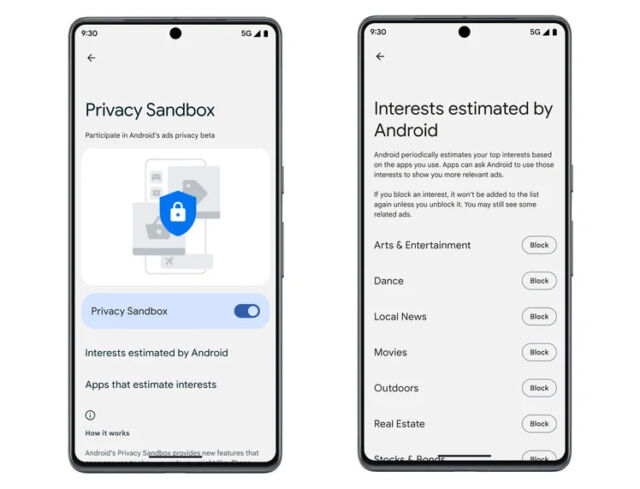TECH

Privacy Sandbox APIs will become widely available in the third quarter of this year
As consumers and regulators increasingly voice concerns about data protection, Google would take a new approach in its browser, market leader Chrome, one of the most notable steps of which is the elimination of third-party cookies. The objective of the Privacy Sandbox initiative, announced in 2019, is to introduce new technologies that replace external cookies and, according to the company, serve to protect data, which is currently outdated. As part of this initiative, the Android system will not use unique identifiers that could be used to track user activity across apps and websites.
There are slow developments in the field, too: following the developer preview released last year, Google launched beta testing of the Privacy Sandbox software on a "narrow circle" of devices running Android 13 on Tuesday, which allows some users and developers take a closer look. Privacy Sandbox APIs will become widely available in the third quarter of this year, followed by a cookie ban over time, with a phase out starting in the second half of 2024.
Beta program participants can find the dedicated Privacy Sandbox menu item under “Settings” where they can read the rules related to participation, review and even block the most important topics of interest determined by the Topic API to show relevant ads.
According to the original mission, the Privacy Sandbox, which encompasses several measures, would try to create some kind of balance: in addition to collecting less data from users, it would also meet regulatory requirements, all without causing too much damage to advertisers, of course the reputation of Google can be an advantage that hopes to improve. Android devices currently have a unique advertising identifier that is used to track user behavior and create a personal advertising profile that app developers can use. The Privacy Sandbox aims to replace that advertising identifier with new APIs that Google says will limit user data sharing with third parties and remove app-to-app identifiers while maintaining support for personalized ads.
One of the purposes of Privacy Sandbox is that users cannot be clearly identified (fingerprint), but data is still collected by the browser but can only be accessed according to specific rules. One of the pillars of this is the Topic API, with which the user's browser (and mobile phone) determines some topics (eg music, fitness, running) that represent the user's most important interests based on their activity. When a user visits a website, the API shares up to three topics – one from the last three weeks – with the websites and their advertising partners, so that they can use this information as one of several possible signals used for advertising based on interests.
mundophone

No comments:
Post a Comment